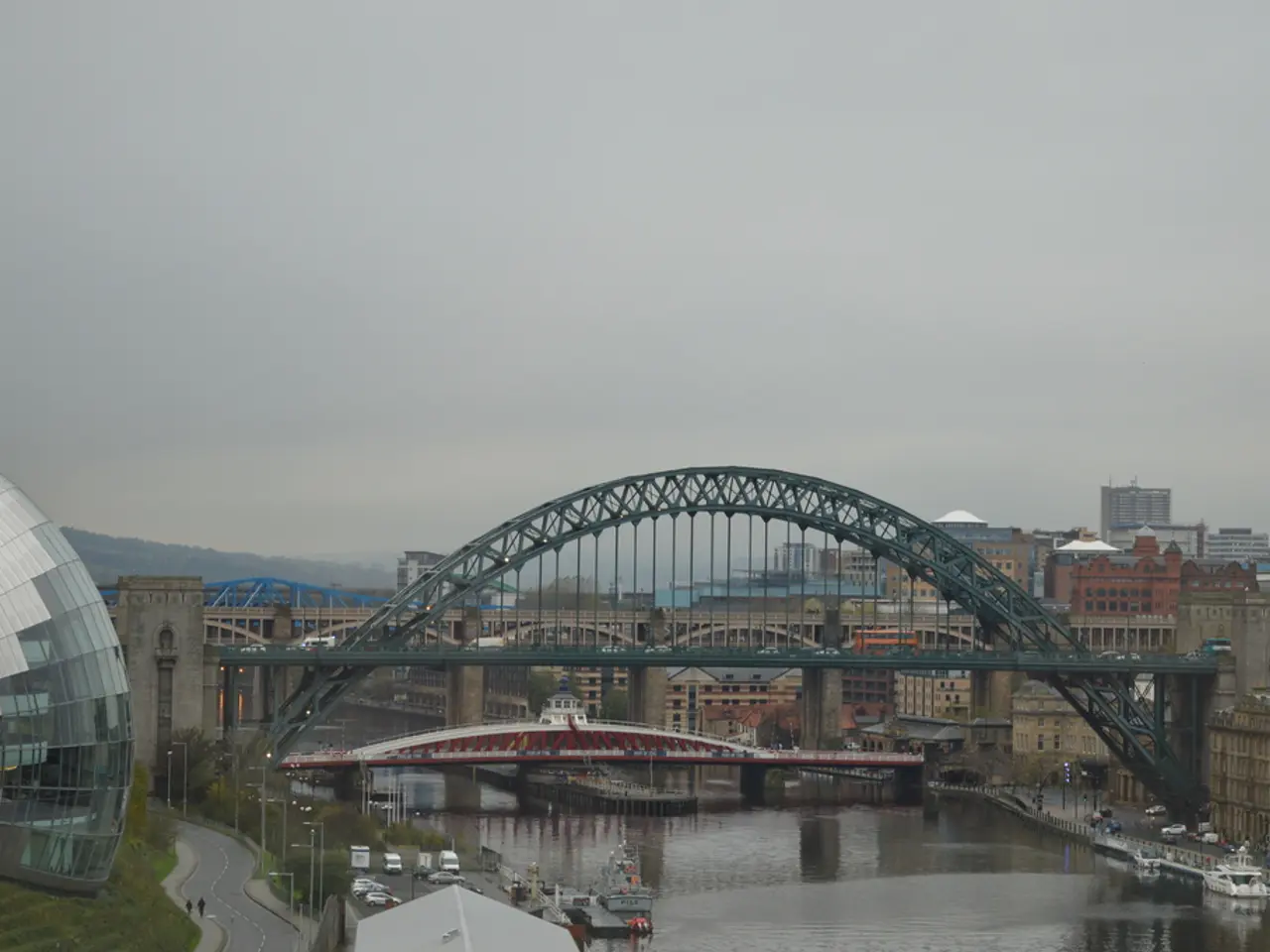Expanded prosperity globally, yet potential future affluence could be compromised - World Bank Analysis
New and Improved Insights on Global Growth and Sustainability
Economic growth has been on an upward trend, but at what cost? The World Bank's latest Changing Wealth of Nations report discloses that global wealth growth might be jeopardizing the future and exacerbating inequalities. Let's delve into the findings and implications of this new report.
Time for Change: Evaluating Wealth Prospects
The scale and approach of the report offer a comprehensive snapshot of wealth-categories including natural, human, and produced capital-in nations worldwide, spotlighting the sustainability of growth for each country. Improved methodology utilizes real wealth assessments, offering a clearer perspective on future prospects for sustainable growth.
Holding onto Natural Wealth: A Challenging Task
Countries are grappling with preserving renewable natural resources, essential for long-term prosperity. Take Gabon, for example, where per capita wealth dropped by a staggering 34.7% from 1995 to 2020, leading to concerns about convertibility of natural resource wealth into broad economic well-being.
Investing in Humans: The Key to Success
Prioritizing human capital-through education, health, and skills development-is critical for harnessing natural wealth to drive sustainable economic growth and shared prosperity. This is a crucial stepping stone towards addressing poverty and inequality.
Tackling Inequality and Poverty: A Necessity
Statistical tools like extreme poverty rates and the Prosperity Gap, emphasize the importance of inclusive sustainable development. Governments should consider policies that close the prosperity gap to improve societal well-being.
Rethinking Development Financing: A Movement towards Equity
There's a call for governments to embrace a public-first approach to development financing, rejecting excessive reliance on private finance markets. State-led development should prioritize universal access to quality healthcare, education, and infrastructure.
Reimagining Development Financing Strategies
Revisiting development financing includes policy changes such as taxing the wealthy, reviving aid flows, and restructuring debt architecture to foster sustainable and inclusive growth.
Attracting Foreign Direct Investment: A Must
To promote economic growth, especially in developing nations faced with falling FDI and rising public debt, it's crucial to facilitate foreign direct investment, remove barriers to trade and investment, and strengthen global cooperative alliances.
In conclusion
The Changing Wealth of Nations report pinpoints that sustainable development depends heavily on effective management of renewable natural capital and human capital while pursuing inclusive policies addressing poverty and inequality. Governments and international bodies are urged to prioritize public investment and revise development financing, ensuring resilient economies for generations to come.
- The combination of economic growth and sustainability is under scrutiny, as the World Bank's report suggests that wealth growth could be harming the future and increasing inequalities.
- The report offers a wide-ranging look at various types of national wealth, including natural, human, and produced capital, providing a valuable analysis of their sustainability in countries around the world.
- Advanced methodologies in the report, utilizing real wealth measurements, offer a more accurate understanding of future prospects for sustainable growth.
- Nations are facing challenges in preserving renewable natural resources, vital for long-term prosperity, as shown by the case of Gabon, where wealth dropped significantly over the years, causing concerns over the conversion of natural resource wealth into broader economic well-being.
- Nurturing human capital is vital, achieved through education, health, and skills development, to unlock natural wealth and drive sustainable economic growth and shared prosperity. This is a key factor in tackling poverty and inequality.
- Inclusive sustainable development is critical, and tools like extreme poverty rates and the Prosperity Gap highlight the importance of policies that aim to reduce prosperity gaps and enhance societal well-being.
- A movement is underway towards equitable development financing, with governments being urged to adopt a public-first approach to development finance, moving away from excessive reliance on private finance markets.
- To foster sustainable and inclusive growth, development financing strategies require reconsideration, including policy changes such as taxing the wealthy, reviving aid flows, and restructuring debt architecture.
- Attracting foreign direct investment is essential, particularly in developing nations dealing with falling FDI and increasing public debt, by easing barriers to trade and investment and strengthening global collaborative alliances to promote economic growth.
In conclusion, for sustainable development, it's vital to manage renewable natural capital and human capital effectively while pursuing inclusive policies addressing poverty and inequality. Governments and international bodies should prioritize public investment and revise development financing, ensuring resilient economies for future generations.




